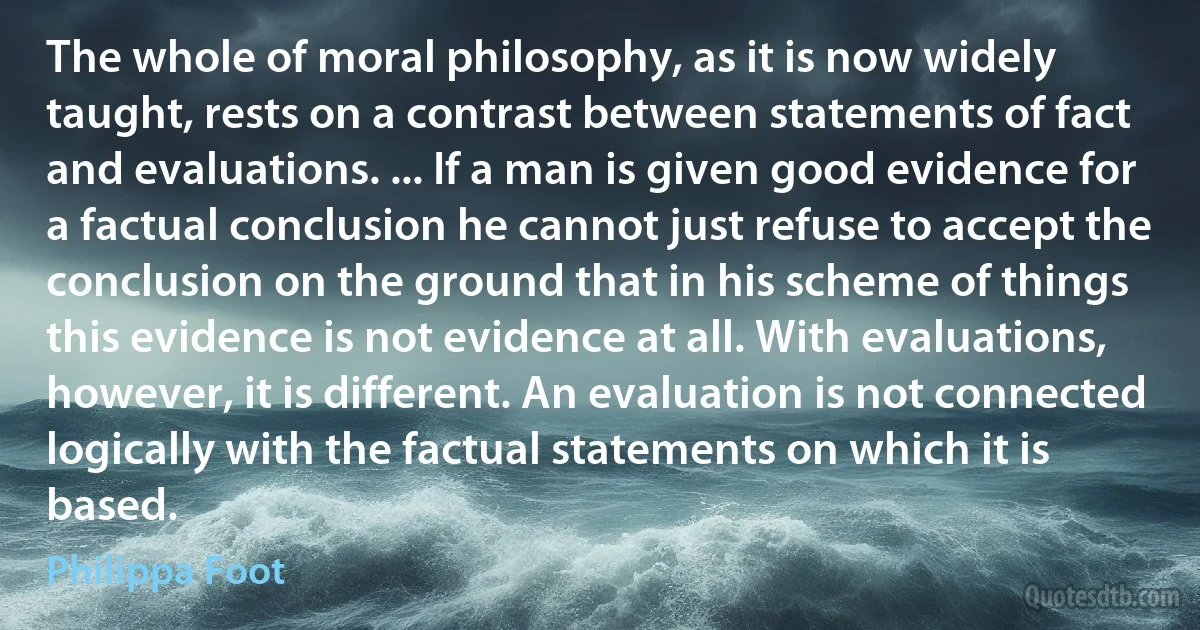Philippa Foot quotes
We will be asked how, on our theory, justice can be a virtue and injustice a vice, since it will surely be difficult to show that any man whatsoever must need to be just as he needs the use of his hands and eyes, or needs prudence, courage and temperance? Before answering this question I shall argue that if it cannot be answered then justice can no longer be recommended as a virtue.

Philippa Foot
Philosophers who have supposed that actual action was required if 'good' were to be used in a sincere evaluation have got into difficulties over weakness of will, and they should surely agree that enough has been done if we can show that any man has reason to aim at virtue and avoid vice. But is this impossibly difficult if we consider the kinds of things that count as virtue and vice? Consider, for instance, the cardinal virtues, prudence, temperance, courage and justice. Obviously any man needs prudence, but does he not also need to resist the temptation of pleasure when there is harm involved? And how could it be argued that he would never need to face what was fearful for the sake of some good? It is not obvious what someone would mean if he said that temperance or courage were not good qualities, and this not because of the 'praising' sense of these words, but because of the things that courage and temperance are.

Philippa Foot
There are here two assumptions about 'evaluations ', which I will call assumption (1) and assumption (2). Assumption (1) is that some individual may, without logical error, base his beliefs about matters of value entirely on premises which no one else would recognise as giving any evidence at all. Assumption (2) is that, given the kind of statement which other people regard as evidence for an evaluative conclusion, he may refuse to draw the conclusion because this does not count as evidence for him.

Philippa Foot
It may seem that the only way to make a necessary connexion between 'injury' and the things that are to be avoided, is to say that it is only used in an 'action-guiding sense' when applied to something the speaker intends to avoid. But we should look carefully at the crucial move in that argument, and query the suggestion that someone might happen not to want anything for which he would need the use of hands or eyes. Hands and eyes, like ears and legs, play a part in so many operations that a man could only be said not to need them if he had no wants at all.

Philippa Foot

